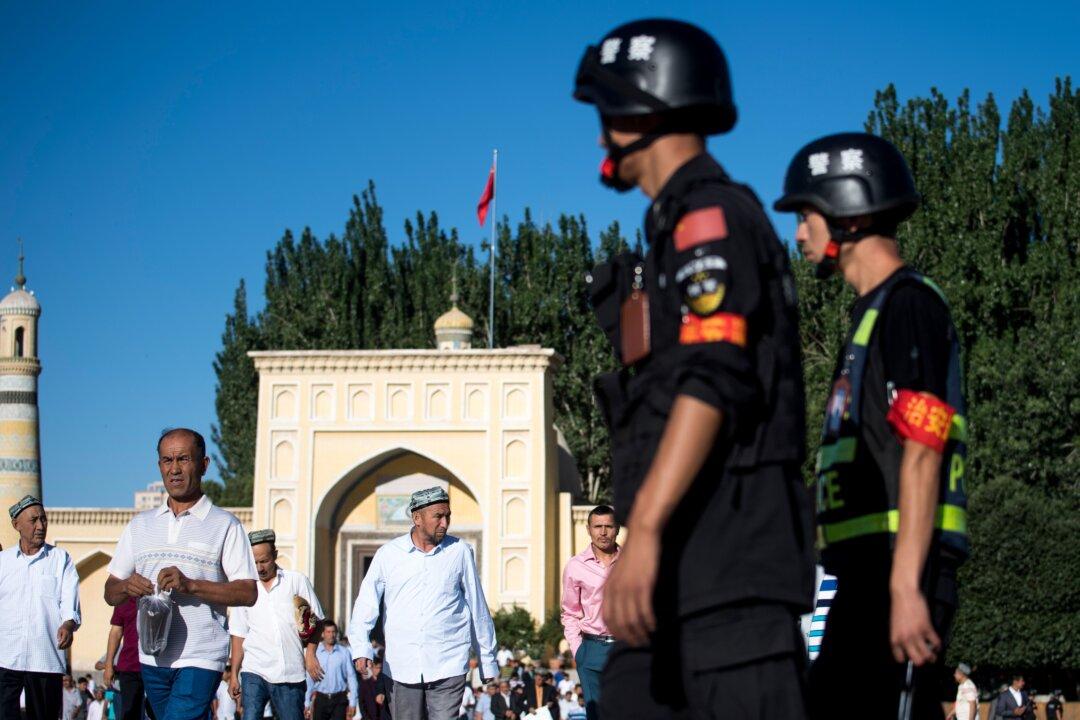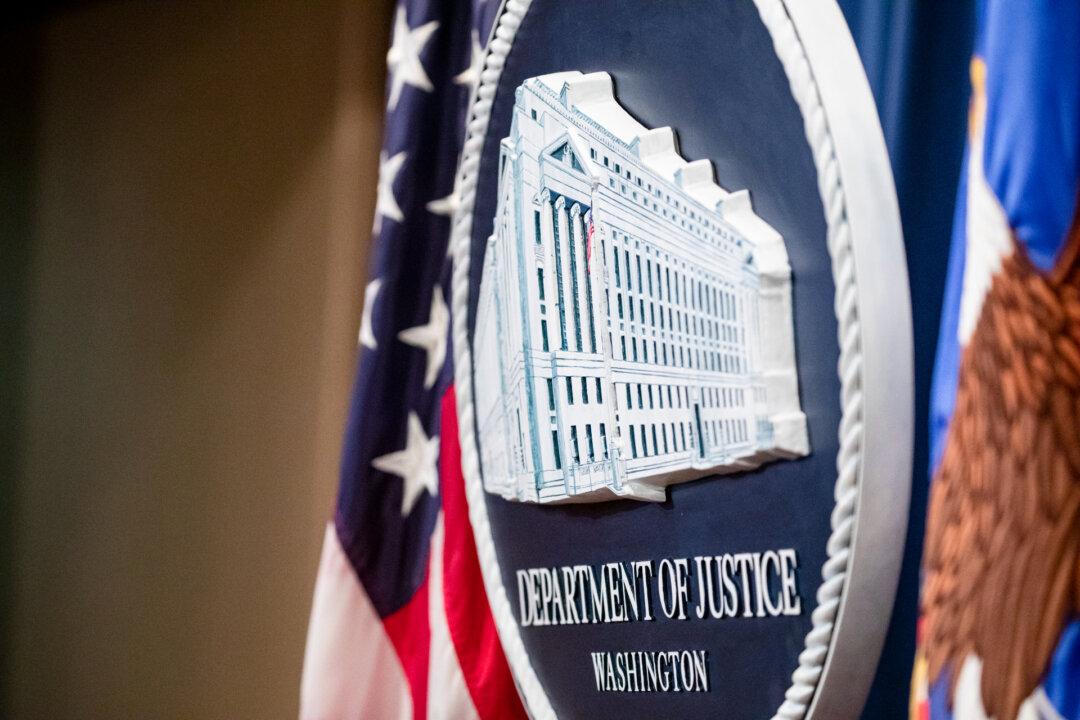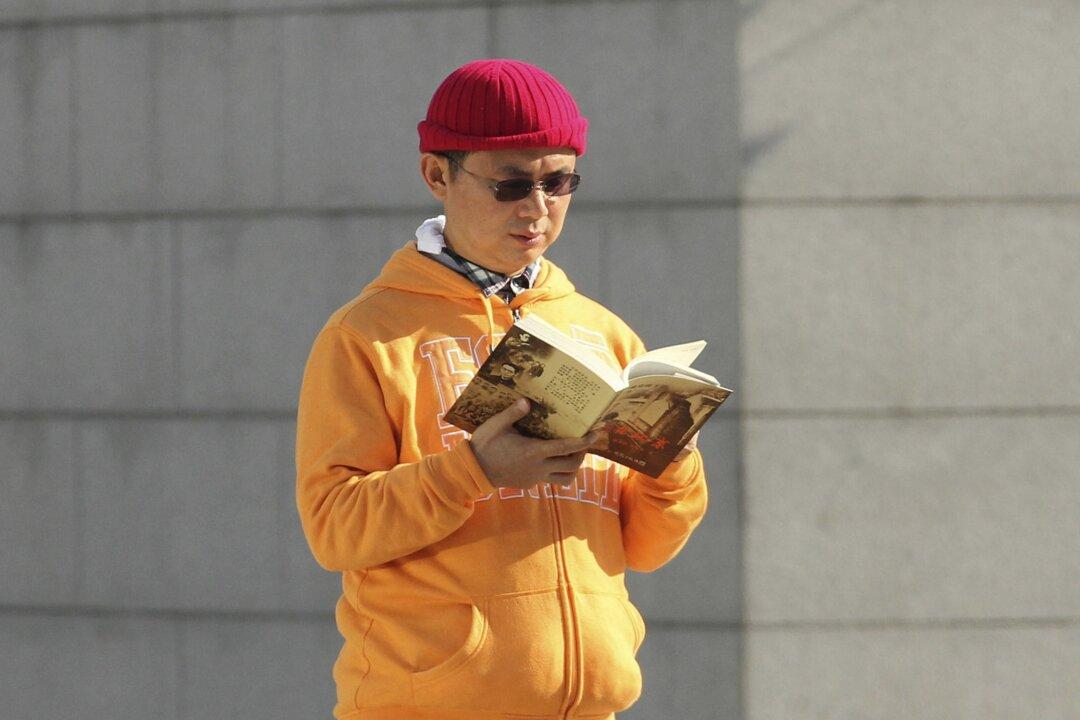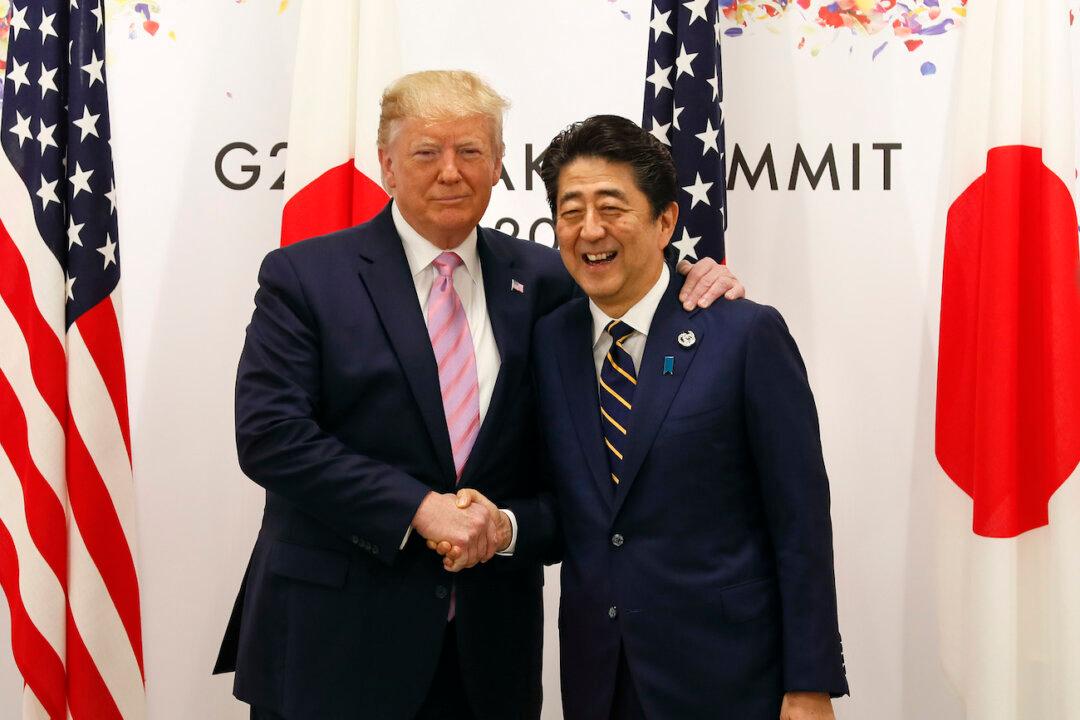A former Chinese executive says she was “horrified” by what she witnessed during a business trip to China’s southern Xinjiang region in 2017, describing the entire locale as a “super concentration camp” for its Uyghur residents.
The experience shattered not only her musings of using the trip to enjoy the region’s happy blue skies, “tasty red dates,” and big-budget opportunities, but also her belief in the Chinese Communist Party’s (CCP) propaganda.
“Since that tour [to southern Xinjiang], I’ve never believed in the CCP’s propaganda,” Ms. Wang, who spoke on condition of anonymity, said in an exclusive interview with NTD, an affiliate of The Epoch Times.
In 2017, Wang and a contingent of colleagues from the chamber of commerce in her province travelled to a southern Xinjiang city to meet with local government officials about state-assisted infrastructure projects potentially worth several billion yuan (over $300 million). They stayed in the city and visited local counties for over two weeks.
Upon reflection, Wang now says the international community has known more about what happens in Xinjiang than people inside China.
‘I Was Exposed to a War-Torn Country’
Upon arrival, Wang felt she had stepped into a “war-torn country.”“I found two groups of armed people—the Hans and the Uyghurs, who respectively held guns and bayonets toward arriving travelers,” Wang said.
She noted that the security personnel of Uyghur ethnic background were not allowed to hold guns, unlike their Han Chinese counterparts.
The streets housed many “small round structures”—security posts which Wang surmised were there to maintain stability.
Police patrolled the streets in formation, moving back-to-back, with eyes scouting all directions at once. As a bystander, Wang said it made her feel quite uneasy.
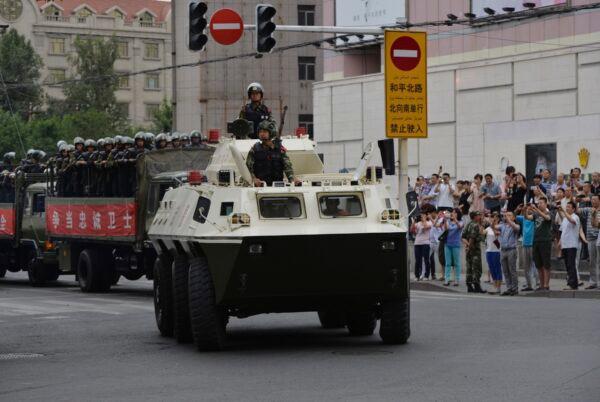
At the hotel, they were met by more security and subjected to further screenings before they could enter the lobby. Their luggage was checked separately and, much like going through customs, they were asked about the purpose of their travel and what they planned to do.
Early each morning, Wang heard sirens screaming as police routinely patrolled the city four times a day.
Setting out to visit counties, their car was stopped and searched thoroughly several times. At a gas station, everyone was required to get out, show their ID, and subject themselves to facial recognition scans before they could refuel.
Han drivers had it easier than Uyghur drivers, Wang noted. The Han drivers did not have to stop at security posts.
What horrified Wang most was the sight that greeted her at the entrance to a local county government.
“Right at the entrance stood a military tank, with three or four soldiers carrying loaded guns,” Wang said, noting that it gave the impression Xinjiang had just survived a war and was trying to revive its economy from the battlefield.
Here, a local county official told Wang privately that anyone with a Xinjiang household registration would be examined by police within minutes of arriving at a non-Xinjiang city in China. This was a mandated requirement across the country which made migration extremely difficult, if not impossible, for Uyghurs.
The official also persuaded her against going out at night because it was unsafe.
“Everything [there] horrified me,” she said. “I’ve never lived in such a tumultuous city. So shocking! Why so different from my imagination?”
We Were Going to Build a Sweatshop: Wang
In 2017, billions of yuan were flowing into Xinjiang, attracting chambers of commerce from other parts of China and fueling a construction boom, Wang said.“Financial incentives were powerful!” Wang said. “One city had a multiple-billion-yuan budget; a province (Xinjiang) had a budget of more than ten billion yuan. That money all came from Xinjiang’s funding to maintain stability.”
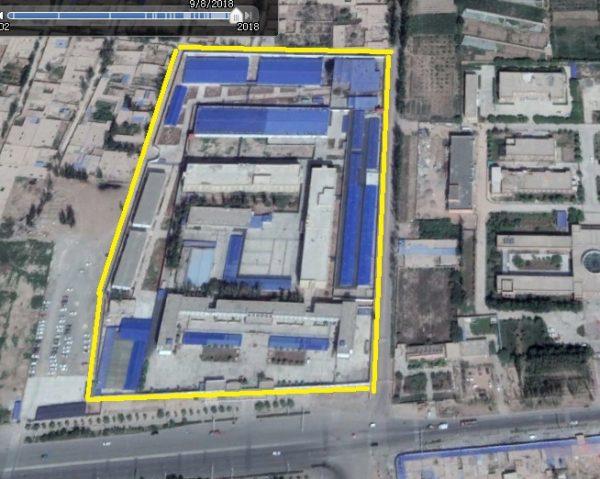
The strict controls on the movements of Uyghurs, making it virtually impossible for them to relocate outside of the Xinjiang region, convinced Wang that the entire locale was like a “super concentration camp.”
She came to understand, by talking with local officials, that the factories and facilities she saw were sweatshops, though she never set foot in one.
“I believe [there are] sweatshops in Xinjiang,” she said. “What we were going to build would probably be a concentration camp, as foreign media outlets put it.”
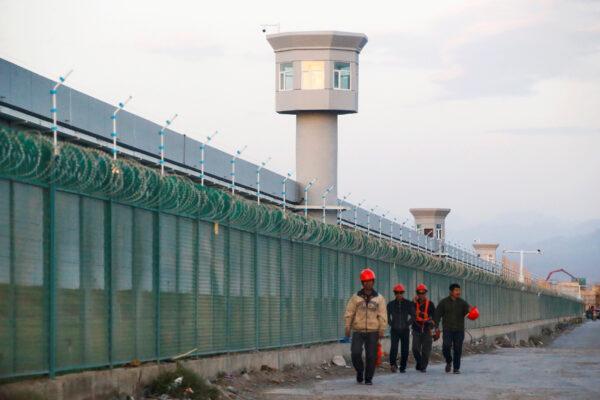
Wang asked a local official who would come to work in a factory if they built one.
She said the official told her: “Xinjiang people are numerous! [We] will make arrangements and get things right.”
Wang surmised that the boom in development, investment, and garment factories was due to forced labor. “The CCP regime will never keep them alive for nothing,” she said.
During their tour, Wang came across a small village by chance. There, she found all the children barefooted, and an elderly man with a red armband was leading a crowd of women shouting slogans.
Bizarrely, she recounted not seeing a single young man in the village. She wondered if all the local young men were out in factories.
The U.S. House of Representatives has since reintroduced a bill with bipartisan backing that would make it illegal to import into the United States all goods from China’s northwestern Xinjiang region unless it can prove that forced labor was not involved in their production.
In Xinjiang, the statement Wang heard most from officials was: “Stability is overriding, and more important than economic growth.”
Upon arrival at the venue, they discovered that all Uyghurs were intrusively body searched, including a young mother with a little baby.
“Kind of touching all parts of your body. Unbearably humiliating. I, also a young mother, was feeling equally awkward,” Wang said.
At their table, they found that every knife was chained down. Uyghur cuisine requires knives for cutting, Wang explained, unlike the typical use of chopsticks.
Astonished, she was about to ask “why?” but swallowed the questions at the gesture of one of her colleagues.
Photos and Videos Mysteriously Deleted from Huawei Phone
During the tour, Wang took many photos and videos with her Huawei cellphone. She said she had 3G network available in Xinjiang but she couldn’t send them out successfully while the locals had 2G network only.More than half a month after the tour, Wang found that all the photos and videos she took were missing from her phone.
“I didn’t delete them. Nor did anyone else,” Wang said. “I clearly remember that police didn’t delete them when I received security checks in Xinjiang.”
The unexpected disappearance of her photos and videos made her alert. Since then, she began to suspect that Huawei cellphones could have “backdoor” as rumored.
Inter-Ethnic Barrier
Upon reflection, Xinjiang felt like a foreign country to Wang, where its elderly people spoke their own language, not Mandarin. But all of them lived in fear.Wang said she sensed a wariness in the Uyghurs who were hesitant to speak their minds, she surmised it was out of fear they may be reported to the CCP. Under such circumstances, heart-to-heart communication was not possible, she said.
A local official told Wang in confidence: “Don’t show pity on them (Uyghurs). They’re awfully bad.”
Wang thought the official might be brainwashed by the CCP propaganda or was afraid to voice their innermost thoughts because they were hand-picked by the CCP authorities.
Wang was disturbed by the CCP’s oppression of the Uyghurs and worried that discriminatory restrictions and security checks might create a greater inter-ethnic crisis.
“It’s the most inhumane to endlessly curb violence with violence and severely differentiate the Hans and the Uyghurs,” she said.
“Since that tour [to southern Xinjiang], I’ve never believed in the CCP’s propaganda.”
